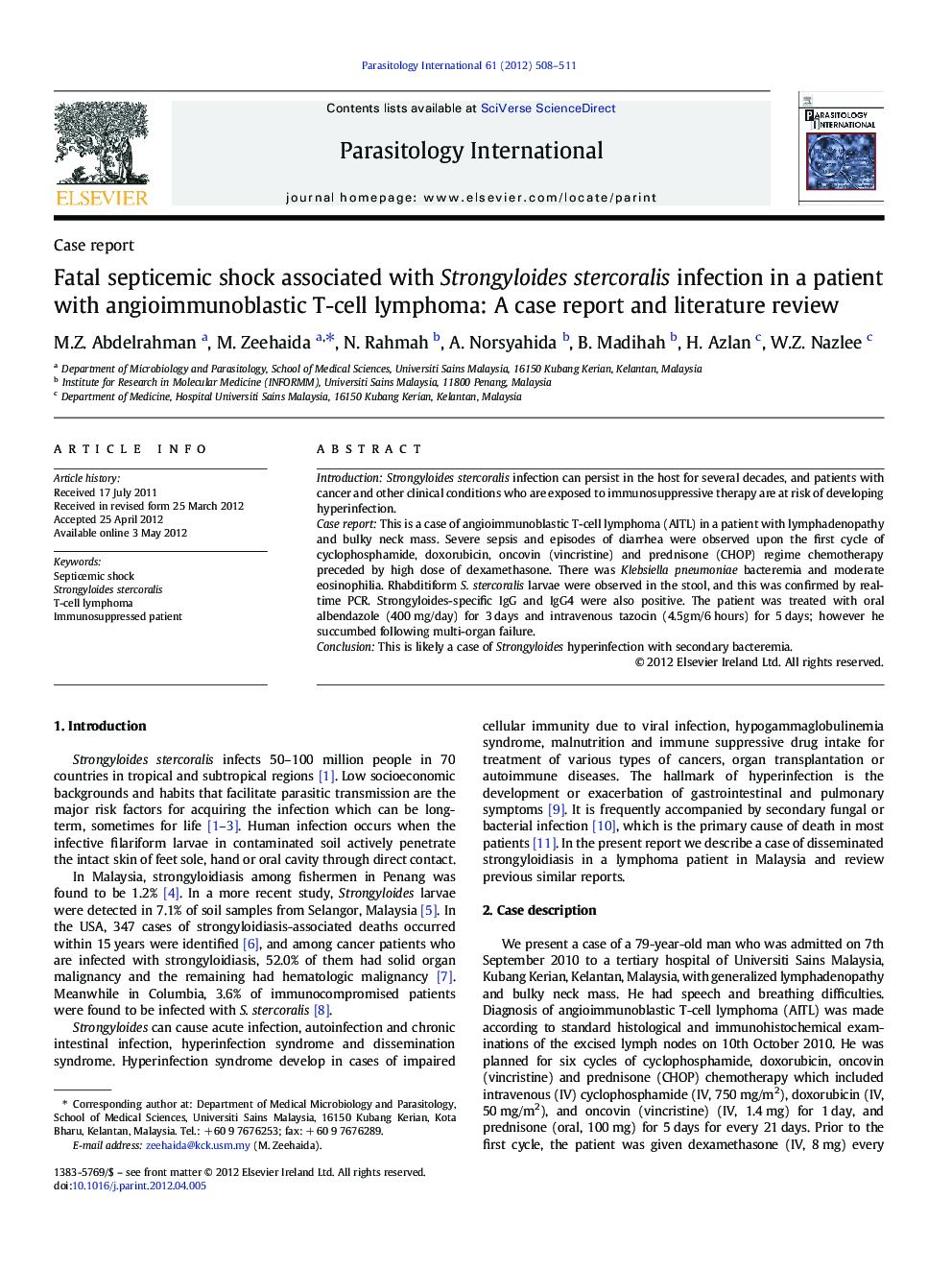| Article ID | Journal | Published Year | Pages | File Type |
|---|---|---|---|---|
| 3418075 | Parasitology International | 2012 | 4 Pages |
IntroductionStrongyloides stercoralis infection can persist in the host for several decades, and patients with cancer and other clinical conditions who are exposed to immunosuppressive therapy are at risk of developing hyperinfection.Case reportThis is a case of angioimmunoblastic T-cell lymphoma (AITL) in a patient with lymphadenopathy and bulky neck mass. Severe sepsis and episodes of diarrhea were observed upon the first cycle of cyclophosphamide, doxorubicin, oncovin (vincristine) and prednisone (CHOP) regime chemotherapy preceded by high dose of dexamethasone. There was Klebsiella pneumoniae bacteremia and moderate eosinophilia. Rhabditiform S. stercoralis larvae were observed in the stool, and this was confirmed by real-time PCR. Strongyloides-specific IgG and IgG4 were also positive. The patient was treated with oral albendazole (400 mg/day) for 3 days and intravenous tazocin (4.5gm/6 hours) for 5 days; however he succumbed following multi-organ failure.ConclusionThis is likely a case of Strongyloides hyperinfection with secondary bacteremia.
